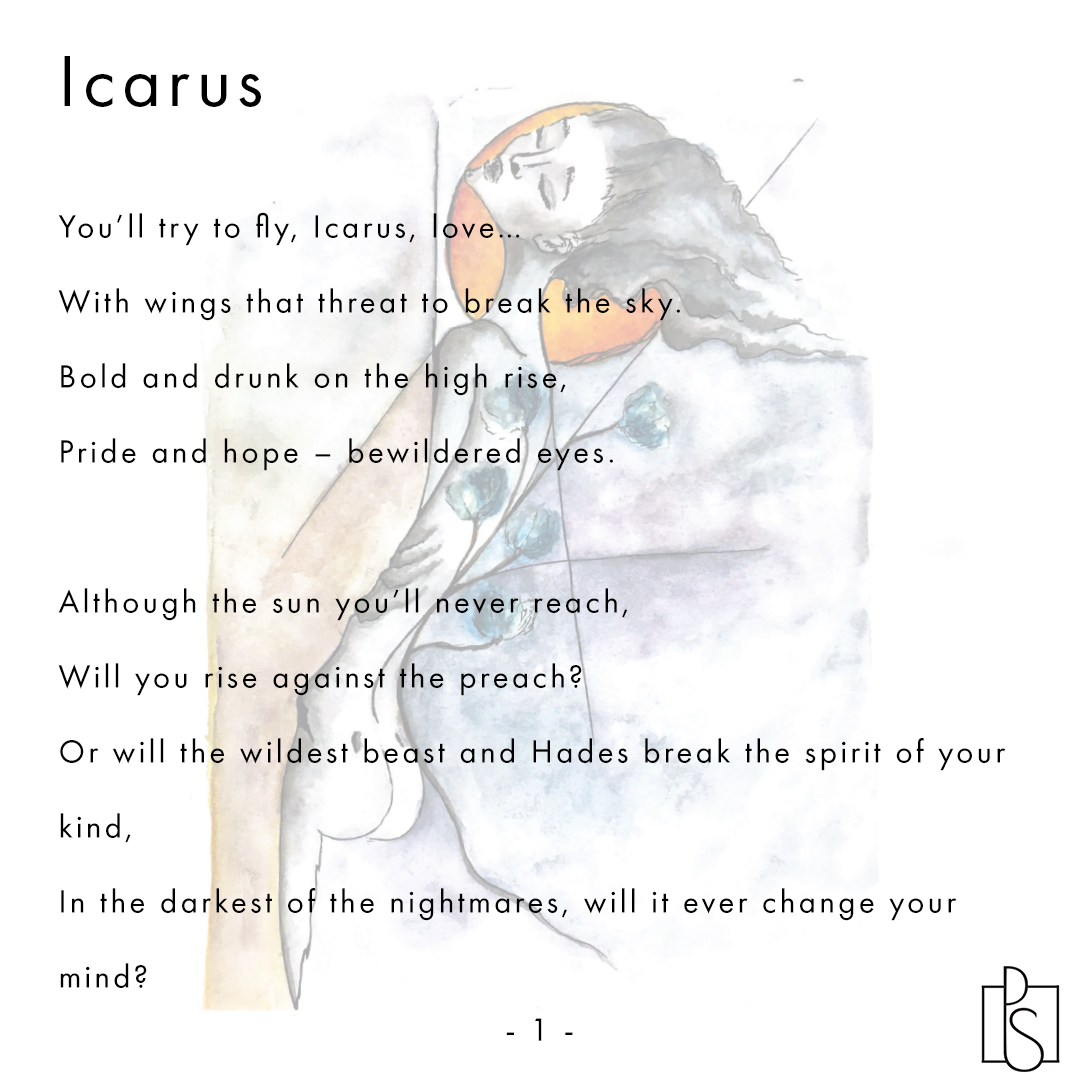
Poem About Mythology: An Enchanting Tapestry of Gods, Heroes, and Legends
In the realm of literature, mythology stands as an eternal muse, its captivating tales woven into the very fabric of human imagination. From ancient Greece to distant lands, mythology has inspired countless poems, each verse a testament to the enduring power of these timeless stories.
When writing a poem about mythology, poets draw upon a vast tapestry of themes, characters, and settings. The tales of gods and goddesses, heroes and monsters, provide a boundless source of inspiration. Whether evoking the thunderous wrath of Zeus or the cunning wit of Odysseus, poets weave these mythical figures into their verses, creating a world both familiar and fantastical.
Suitable Writing Styles for Poem About Mythology:
- Epic: Grandiose and sweeping, the epic style captures the масштаб and magnitude of mythological events.
- Lyric: More personal and introspective, the lyric style explores the emotions and experiences of individual characters within the myths.
- Narrative: This straightforward style recounts the events of a myth in a clear and concise manner.
- Dramatic: By employing dialogue and action, the dramatic style brings mythological scenes to life, allowing readers to feel as if they are experiencing the events firsthand.
- Free Verse: Unbound by traditional rhyme or meter, free verse allows poets to explore mythological themes with greater freedom and flexibility.
Poems About Mythology:
Ode to Olympus
On marble peaks, where gods reside,
Zeus wields his lightning, power unconfined.
Athena, wise and fierce, her wisdom bright,
Guides heroes lost in darkest night.
Apollo’s lyre, a celestial sound,
Charms mortals, heals the wounded ground.
Poseidon’s trident rules the stormy seas,
While Hades’ realm holds all that earthly cease.
The Hero’s Journey
From humble birth to glory’s flame,
The hero’s quest transcends all fame.
Odysseus, tossed by fates unkind,
Navigates the waves, seeks peace of mind.
Hercules, strong and brave of heart,
Conquers monsters, plays a vital part.
Gilgamesh, king of ancient lore,
Embarks on epic journeys to explore.
Creatures of Legend
In shadows lurk, creatures of ancient might,
Dragons guarding treasure, day and night.
Centaurs gallop with hooves that pound,
Halflings dance on enchanted ground.
Sirens’ songs entice with haunting call,
Luring sailors to their watery thrall.
Griffins soar, half-eagle, half-lion bold,
Defenders of secrets, stories yet untold.
How to Write a Poem About Mythology:
- Choose a compelling myth: Select a story that resonates with you and inspires your imagination.
- Research the myth: Learn the details, characters, and context to ensure accuracy and depth.
- Identify the theme: Determine the central message or idea that you want to convey through the poem.
- Craft the imagery: Use vivid and evocative language to paint a vivid picture of the mythological world.
- Develop the characters: Humanize the gods, heroes, and creatures by exploring their emotions, motivations, and conflicts.
- Employ literary devices: Utilize metaphors, similes, and other literary devices to enhance the impact and imagery of your work.
- Seek inspiration: Read other poems on mythology, study ancient texts, and immerse yourself in the mythological realm.
Tips for Reading a Poem About Mythology:
- Context is key: Understand the background of the myth being explored to fully appreciate its references and symbolism.
- Identify the perspective: Consider the voice and perspective of the poem; is it that of the god, hero, or a narrator?
- Look for symbols: Pay attention to the use of imagery and symbolism, as they often convey deeper meanings and connections to the myth.
- Feel the rhythm: Notice the rhythm and meter of the poem; how does it contribute to the overall mood and atmosphere?
Questions and Answers:
- What are some common themes found in poems about mythology?
- Heroism, fate, love, war, wisdom, and the nature of good and evil.
- Can I write a poem about a lesser-known myth?
- Yes, exploring lesser-known myths can provide unique opportunities for fresh insights and creativity.
- How do I avoid plagiarism when writing about mythology?
- Always cite your sources and acknowledge the original authors whose work inspires your poem.
Conclusion:
Weave the threads of myth and poetry together, and you will create works that resonate through time. May this article inspire you to explore the captivating realm of Poem About Mythology and share your own verses with the world.
Remember:
- Avoid plagiarism by respecting the work of others.
- Support poets by giving credit to the original authors and sharing their creations.
- Embrace the power of words to bring ancient myths alive in new and inspiring ways.
Thank you for reading!
